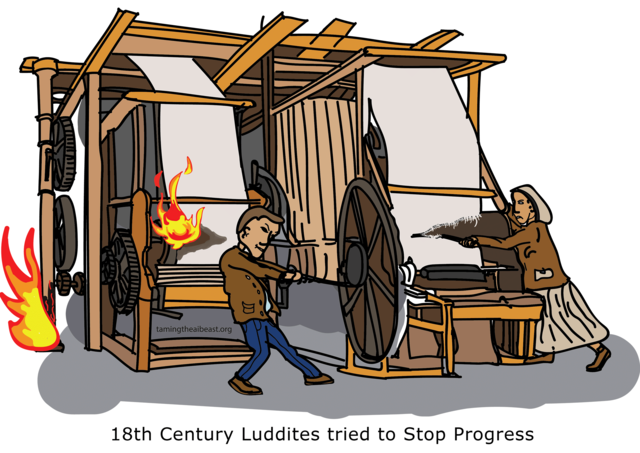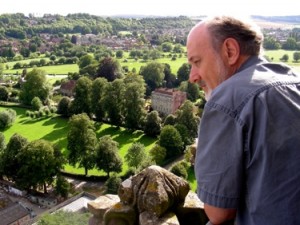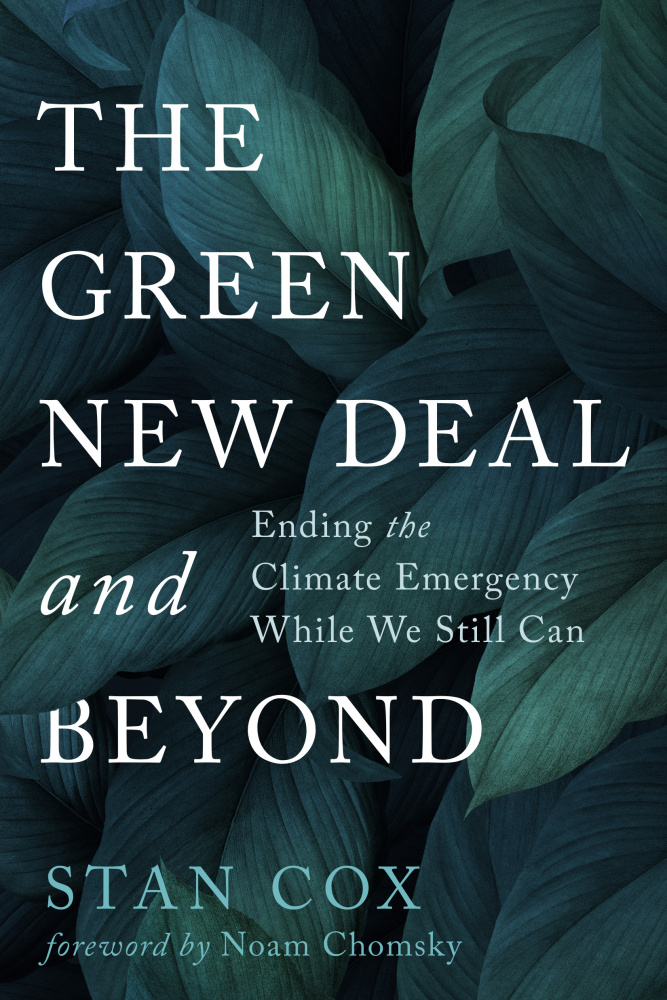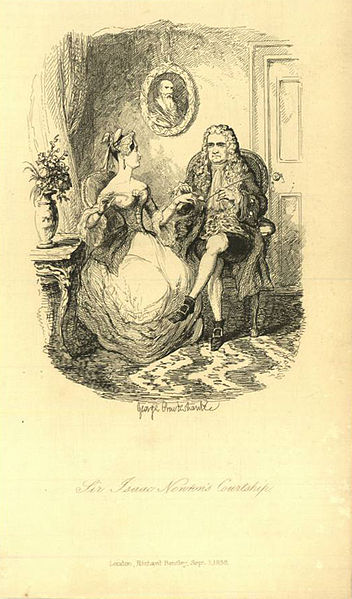Independent journalist Yanis Iqbal, based in India, has written a series of articles about commodities and imperialism in Latin America. He presents some of his findings on coffee in Colombia, tourism and the displacement of Indigenous people in Honduras, and lithium imperialism in Chile and Bolivia.
Category: Environmental Science
Civilizations 13: The Industrial Revolution
We cover the Industrial Revolution in England, from a few angles. Justin inserts his usual colonial determinism notes, as well as some environmental history about fossil fuels and energy sources for imperialism; Dave takes us through the revolution and what it meant; we talk about the rise of the working class, reveal that the Luddites pretty much had it right, and conclude with the early socialists: Robert Owen, and Marx and Engels.
The Anti-Empire Project Episode 51: What is Ecological Economics? With Peter Victor.
I talk to Ecological Economist Peter Victor, author of Managing Without Growth, about the idea of the economy taking place within a biological envelope, what is required for market prices to reflect value, and the pitfalls of the valuation of natural capital.
The Anti-Empire Project Episode 49: Beyond the Green New Deal, with Stan Cox
I talk to Stan Cox about his new book, The Green New Deal and Beyond: Ending the Climate Emergency While We Still Can. We talk about the good aspects of the Green New Deal (especially the New Deal aspects), some of the assumptions that will have to be revised (that good fuels will automatically crowd out bad, that we can grow our way out of the emergency, etc.) and discuss some policies that could actually work.
Civilizations Series Episode 8: Ideas – Scientific Revolution – Enlightenment
We talk about the scientific revolution – Galileo, Brahe, Kepler, Newton, Rousseau, Voltaire, Montesquieu and others; and take a tour of the Enlightenment as well, and the importance of Enlightenment ideas in the revolutions that would soon follow it.
The Anti-Empire Project Episode 41: The magic bullet for COVID-19 with Drs. Thomson and Loubani
I talk to nephrologist Ben Thomson and ER doc Tarek Loubani about the magic bullet for COVID-19 (there isn’t one). The key messages: medical people – switch to reusable masks. Everyone: social distancing works, don’t lose your nerve. So do social democratic reforms, like having a public health system.
Economists’ solutions to health crises can be disastrous
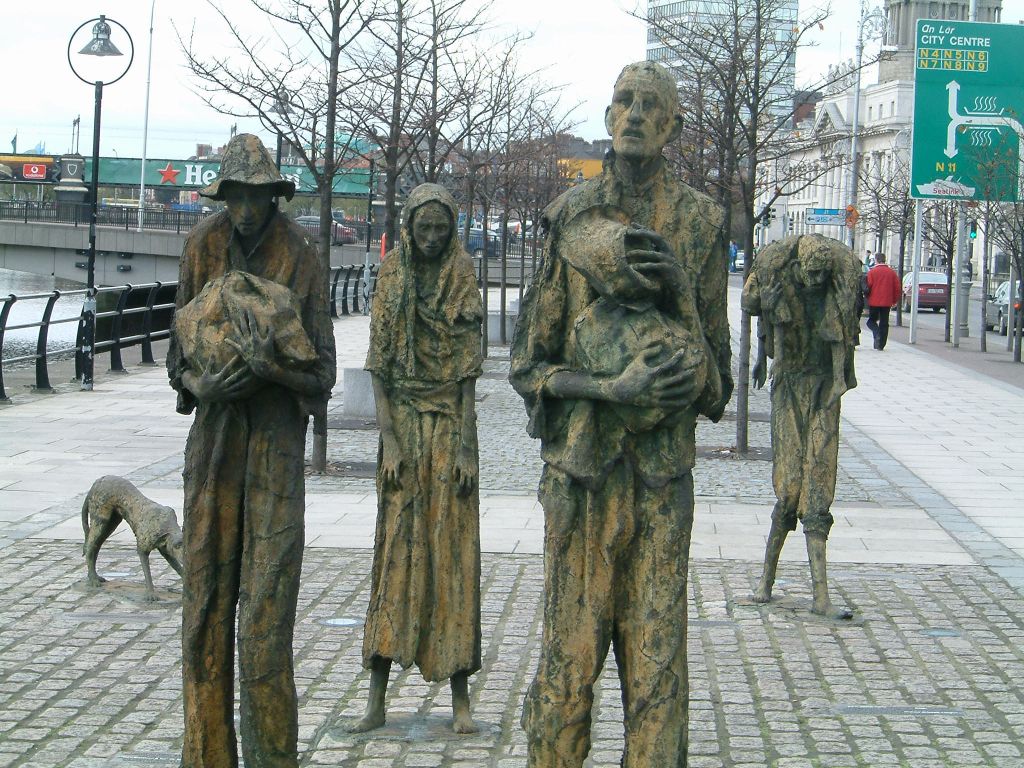
Classical economics helped kill millions in the British Empire’s famines; following economic orthodoxy today could be just as deadly
I’m writing this at 585,000 worldwide active cases, 26,000 deaths, and with only China and South Korea seemingly under some sort of control (using a social metric tool, Worldometer). The stimulus package announced by the US government is at $2 trillion, but without job protections, rent freezes, or meaningful income support for most people. Where to reach for analogies to help us understand the moment? The AIDS crisis? The 2008 economic crisis? SARS?
Every analogy can capture a part of the story. On March 23, US President Donald Trump floated the idea of sending everyone back to work within weeks, ignoring the advice of public health scientists. This echoed Jair Bolsonaro’s denialism in Brazil and Boris Johnson’s early talk of seeking “herd immunity” by “taking it on the chin,” which his ministers walked back a few days later. On this specific issue, the prioritizing of economic projections over scientific ones, there is one clear analogy with the last great empire: the British Empire, with its special penchant for the mass starvation of millions.
As the British Empire expanded in the 18th century, its intellectuals developed the perfect set of ideas for an empire: classical economics. Adam Smith’s The Wealth of Nations was published in 1776, after numerous genocidal wars against indigenous peoples in the Americas and at the beginning of the Empire in India.
David Ricardo, Thomas Malthus and John Stuart Mill all made their contributions to the classical theory. As soon as the imperialists consolidated their control, they dismantled local governmental systems for preventing mass starvation and the famines across India began. Shashi Tharoor listed them in his book Inglorious Empire: starting with Bengal in 1770, and on to Madras, Delhi and Bombay through 1943. In the 20th century alone, 35 million people were killed by British-administered famine in India.
In the name of the same doctrines, the British also starved the Irish. The potato famine of 1845-49 fell in this period, and the Irish were victims of the same doctrines. Edward O’Boyle in 2006 linked classical economics to the Irish famine and identified the tenets of classical economics as: 1. the law of self-interest; 2. the law of free competition; 3. the law of population; 4. the law of demand and supply; 5. the iron law of wages; 6. the law of rent; and 7. the free-trade doctrine.
Taken together, these laws, as critic Karl Polanyi wrote of the self-adjusting market, “could not exist for any length of time without annihilating the human and natural substance of society; it would have physically destroyed man and transformed his surroundings into a wilderness.”
During one of the many Indian famines (Southern India, 1876-78), the British viceroy Lord Lytton declared, “there is to be no interference of any kind on the part of government with the object of reducing the price of food.” Johann Hari tells the story of one British official, Sir Richard Temple, who, when he imported some food to give to the starving during another famine, was denounced by the Economist magazine for giving Indians the notion that “it is the duty of the Government to keep them alive.”
During that empire, classical economic theory and famine combined seamlessly with racism in a toxic brew. O’Boyle quotes an 1875 lecture by classical economist William Stanley Jevons: “a famine comes to be looked upon as a kind of natural event … war is … a normal state of things, in early societies. The North American Indians, for example, their only serious occupation, their only amusement, was war … the way the Irish live, especially, in some of our large towns and in some parts of their own country, makes it a priori probable that they die fast.”
The British had an empire of famine. We live in an empire of sanctions. As Iran, Venezuela and Gaza crack under the simultaneous strain of pandemic and siege, diplomats beg the US to suspend the sanctions until the current crisis passes. To no avail: Remote-control mass murder is too solid a plank of US policy to be suspended over something so small as a global pandemic.
To what extent has economics been refined over the centuries? To what extent has it become more rooted in evidence? An abundance of literature from scholars just outside of mainstream economics argues, “not very much.”
Back in 2001, heterodox economist James Galbraith wrote an article listing five widely accepted propositions of today’s economics profession (“Inflation is … a monetary phenomenon”; “Full employment without inflation is impossible”; “Rising pay inequality stems from technological change”; “Rising minimum wages cause unemployment”; “Sustained growth cannot exceed 2.5% per year”), how each of them was discredited by the economic evidence, and how they continued to be held despite the evidence. The same year, Australian heterodox economist Steve Keen published Debunking Economics: The Naked Emperor of the Social Sciences, about the theoretical and empirical failures of mainstream orthodoxy.
A decade later, in the book ECONned, Yves Smith collected a litany of the ways the assumptions on which economic models are built don’t hold up to the data (from market equilibrium to the demand curve). Similar works abound, as do interesting approaches to real economies that are rejected by the economics mainstream.
The mainstream is reported to be so closed off to alternative ideas that in universities, heterodox economists are sent to different types of programs like political economy at Stanford, or economics and policy studies at Notre Dame, which was split off from the Economics Department in 2003 and then closed in 2010. At the University of Manitoba, the conflict between orthodox and heterodox economics got so dramatic that the Canadian Association of University Teachers did an investigation of the department in 2015.
Science works differently. As Albert Einstein put it, science is the refinement of everyday thinking. To me, science is the systematic use of the human quality of curiosity.
There are many scholars who think scientifically – who use transparent assumptions and a systematic approach to reasoning and drawing conclusions from evidence – about economies. But these scholars are excluded from the economics profession, and it is the economics profession – with its untenable assumptions and disdain for economic realities – that builds the models that set policy during disasters and pandemics.
Trump’s announcement that he wants businesses to open again in a few weeks prompted a discussion of whether to listen to the economists or the doctors. This isn’t a dispute between two sciences – only the doctors are doing science here.
Previous viruses and previous crises can only give us hints. The most meaningful data that we have about this crisis come from the countries it hit worst early on – China, South Korea, Italy, Iran. Any modeling we do has to start from these data, and any good ideas for how we could get through this must pass through the study of these examples.
Trump and the global right that follow him (Bolsonaro, Johnson, etc) despise epidemiological science just as they despise climate science, and for the same reasons: Science is about realities that conflict with their ideologies and is disruptive to their propaganda. Science is clear that saving lives will involve some interruption in the march of the super-wealthy to the destruction of society and the environment.
What science-fiction writer Kim Stanley Robinson said a decade ago about climate science is true in this moment: “What’s been set up and is playing out now is a huge world historical battle between science and capitalism. Science is insisting more emphatically every day that this is a real and present danger. Capitalism is saying it isn’t, because if it were true it would mean more government control of economies, more social justice (as a climate stabilization technique) and so on.”
If we listen, science can help us through this moment. Following the economic models, on the other hand, will get people killed as certainly as it did a century ago.
This article was produced by Globetrotter, a project of the Independent Media Institute, which provided it to Asia Times.
The Ossington Circle Episode 24: How the World Breaks with Stan Cox and Paul Cox
I talk to Stan Cox and Paul Cox, authors of How the World Breaks: Life in Castastrophe’s Path from the Caribbean to Siberia. We discuss how we think and talk about disasters, the aid industry, and the uses and excuses associated with the concept of ‘resilience’.
El Circulo Ossington Episode 23: El Caso de Parex y la Extraction en Colombia desde Canada
El primer episodio del Circulo Ossington en castellano. Hable con Manuel Rozental, Oscar Sampayo, y Anna Zalik sobre la compania Parex y sus actividades de fracking en Colombia.
The Ossington Circle Podcast Episode 2 – Syria, Environment, War, and Refugees
This episode of the podcast is a lecture given on a panel at York’s Faculty of Environmental Studies on January 28, 2016. The panel was on Environment, War, and Refugees, and the lecture was on Western policy and the war in Syria.

